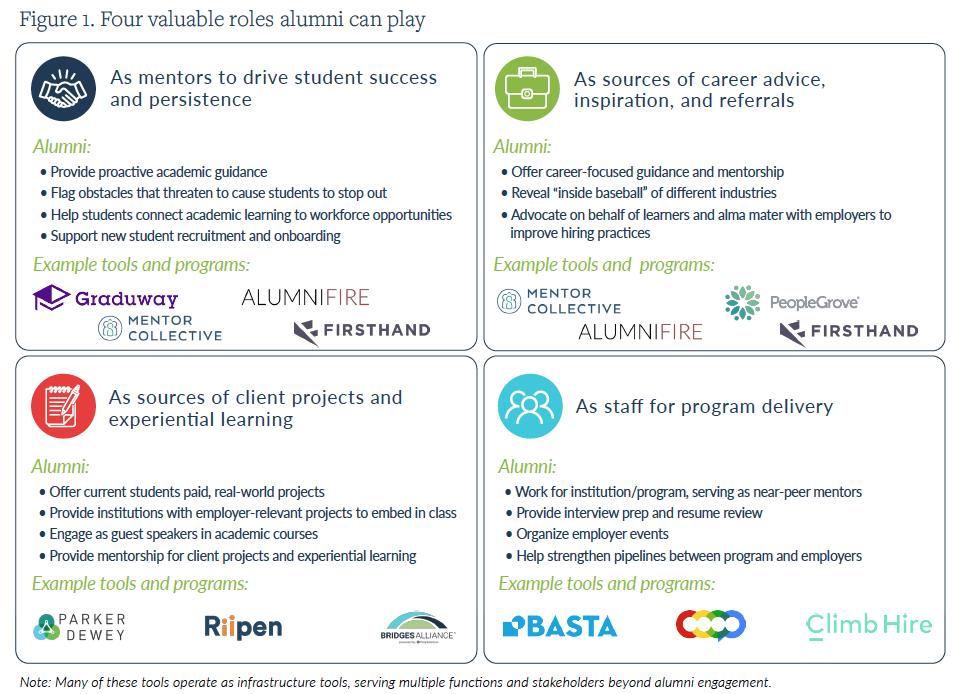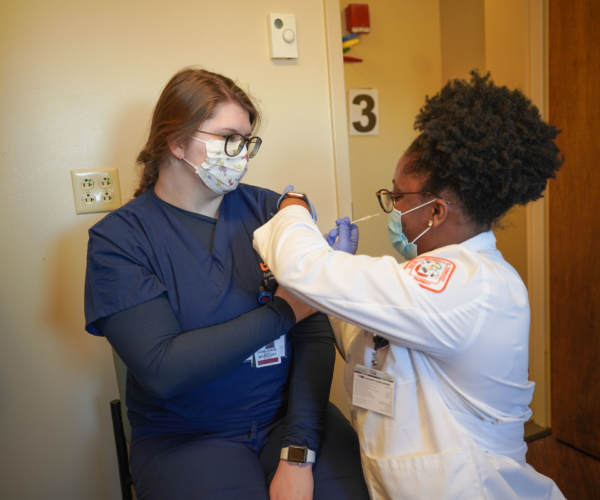
Only a small fraction of graduates have found their college’s alumni networks “very helpful” in launching their professional lives, studies have shown.
Campus leaders can build better student connections with a slate of strategies outlined in the new “Alumni Networks Reimagined” report from the Clayton Christensen Institute, a think tank that studies disruption in education and other sectors.
“Any institution trying to increase student return on invest in a degree program should be think more strategically about how to leverage alumni capital,” says Julia Freeland Fisher, the institute’s director of education. “For institutional leaders, ‘How are you harnessing this dormant reservoir of social capital?'”
There is also an equity angle, to these networks. It can level the playing field for students and graduates whose families aren’t already well-connected to potential employers, she says.
More from UB: Online students’ mental health more likely to suffer
“If we hope higher education is not going to reproduce inequality, institutions need to get into the game of network building much more deliberately than they have been,” she says. ..
The report cites Colby College as an example of a smaller institution that has temporarily repurposed its advancement staff to “work as job seekers rathern the fundraisers,” Fisher says.
Colby’s advancement staff have been tapping into alumni networks to help students start their careers during the COVID recession, Fisher says.

“It’s a window into the role alumni can play if you’re really laser-focused on employability,” she says
The report breaks down four valuable roles alumni can play:
1. Mentors to drive student success and persistence
- Provide academic guidance
- Flag obstacles that threaten to cause students to leave school
- Help students connect learning to workforce opportunities
- Support recruitment and onboarding
2. As sources of career advice, inspiration and referrals
- Offer career-focused guidance
- Reveal “inside baseball” of different industries
- Advocate on behalf of learners and institutions with employers to improve hiring practices
3. As sources of workplace projects and experiential learning
- Offer current students paid, real-world projects
- Provide institutions with employer-relevant projects to embed in class
- Engage as guest speakers in academic courses
- Provide mentorship for client projects and experiential learning
More from UB: HBCUs to launch ‘game-changing’ Propel Center in fall
4. As staff for program delivery
- Work for institution as near-peer mentors
- Provide interview prep and resume review
- Organize employer events
- Help strengthen pipelines between students and employers
“We are seeing the post-secondary market slowly shift to a more outcomes-based market that pays attention not just to the prestige of the institutions but to the outcomes,” Fisher says. “In an outcomes-based world networks are going to matter a lot more.”








